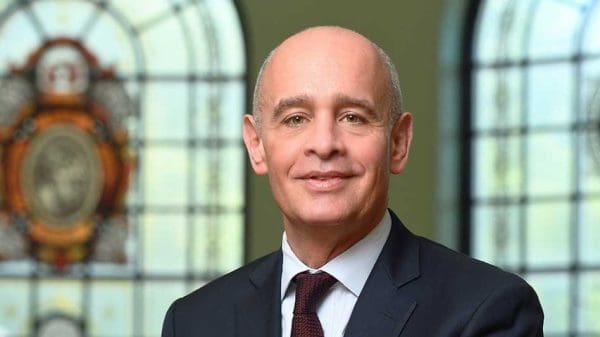The Krieger School of Arts and Sciences is something of a Grand Central Station for the university. Connections branch out from our academic departments, all of which are devoted to basic research in the humanities, the arts, and the sciences—natural and social. Those intersections have matured into working relations between Krieger School faculty with interests in—for example—condensed matter physics and Whiting School engineers interested in materials science, or our Gilman Hall philosophers who are working with ethicists in the Berman Institute for Bioethics, or the biologists interested in genomics conducting research with colleagues in the Institute of Genetic Medicine at the Johns Hopkins Medical Institutions. New relationships are also growing between the School of Education and our Department of Sociology, which has a storied history in the study of educational attainment, school performance, and school integration issues.
These ties express what President Ron Daniels calls the “one university” model of Johns Hopkins. It has not always been this way. In the past, a more balkanized version of JHU prevailed. Today, however, my fellow deans and I have embraced a new way of thinking about how we might make the most out of the myriad ties that bind us together.
While this connective tissue begins with researchers discovering mutually exciting problems to solve, it is fully realized only when we find ways to incorporate our students—graduate and undergraduate—in the great potential that “one university” holds for knowledge creation and the application of discoveries in the real world that our professional schools serve. We are looking for ways to ensure that the youngest members of our community can move seamlessly between the realm of basic research as we know it in the Krieger School, and those professional worlds that our colleagues in engineering, medicine, international affairs, education, public health, and music occupy.
One example is our strong tie with the Bloomberg School of Public Health. The Krieger’s School’s program in public health, led by Dr. Kelly Gebo, has become a “destination major,” drawing high school students from all around the country. Undergraduates in this field spend their senior year in East Baltimore, where the School of Public Health is located, having elected one of the numerous specialties there. They complete their degrees with a unique combination of foundational courses and specialized and focused “tracks,” making them desirable prospects for nonprofits and NGOs around the country and, indeed, the world.
Another integrated effort has for years now taken our undergraduates to Washington, D.C., and Bologna, Italy, the twin homes of the Paul H. Nitze School of Advanced International Studies (SAIS). After completing their junior year on the Homewood campus, participating students transition to the master’s degree program at SAIS, and in the space of five years complete programs that take “outsiders” six years to finish. Talking with SAIS’ new dean, Dr. Vali Nasr, I have come to realize how well respected our students are for their intellectual qualities and what a credit they have become, both to the Krieger School and to SAIS.
Just this year, we launched a new program that links seniors finishing their degrees in the arts and sciences with the School of Education where, in their fifth year, they complete a master’s degree in teaching in the evenings and spend their days student teaching in the Henderson-Hopkins School in East Baltimore. Hopkins students can now compete to be selected for a fellowship that entitles them to a tuition-free master’s degree and a stipend of $20,000 during this period and then move into jobs in the Baltimore City public school system. These Baltimore Education Fellows will take all that they have learned in our classrooms and translate it, under the watchful guidance of master teachers, into lesson plans for children in this new K–8 school.
We are in the process of making similar joint degrees available to students who want to study in the Carey Business School and will be discussing possibilities with the School of Medicine, which, once upon a time, had a joint degree with the undergraduate campus. It takes time and a lot of thought to find the right blend of undergraduate preparation and professional school focus, but in the end, these options help many of our students create a path into the real world that is enhanced by an advanced degree.
The academic departments at the Krieger School are eager to provide similar advanced training to students who may wish to complete a master’s degree in most of our 22 academic disciplines by remaining with us for an extra year. The history and biology departments have long offered BA/MA degrees and the rest of our departments are preparing similar tracks for our undergraduates, who are often as talented as the graduate students we compete for who are coming from other universities. Why not give our alumni an opportunity to stay with us and complete that special project that will show the world just what they are able to achieve?
The world is becoming a more competitive place with every passing day. For many of our students, a bachelor’s degree will not be sufficient to see them through to the career of their dreams. We are happy to help them along the way, whether by creating a path to the professional schools that are part of the Hopkins family or by giving them options to stay right where they are and become more accomplished scholars in the fields that are embedded in the Krieger School. It’s a joy to have them!
Sincerely,
Katherine Newman
James B. Knapp Dean


